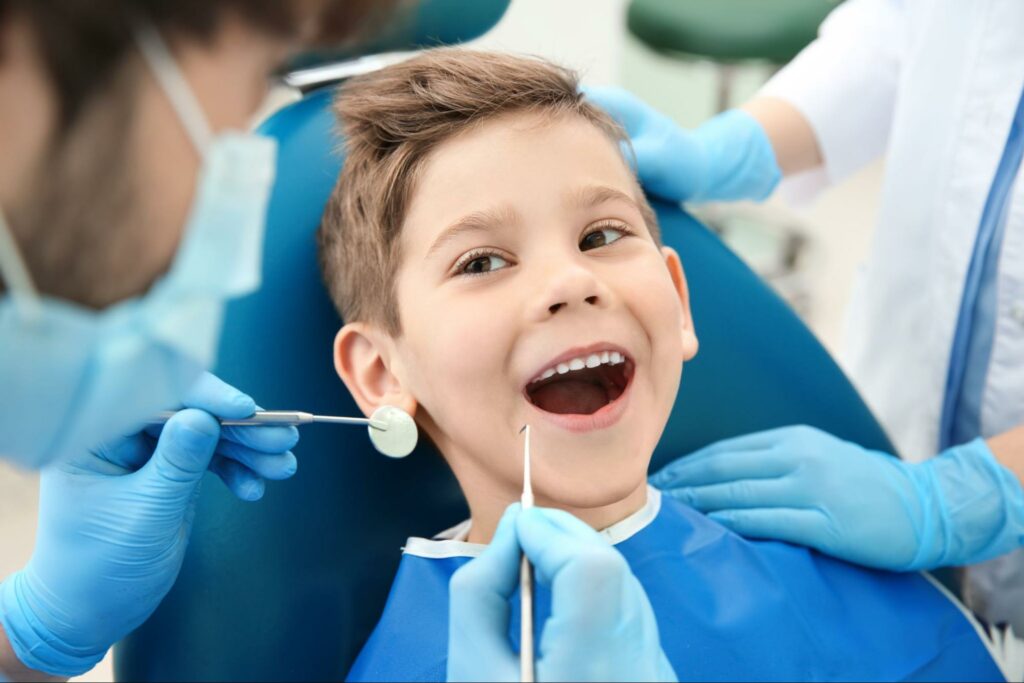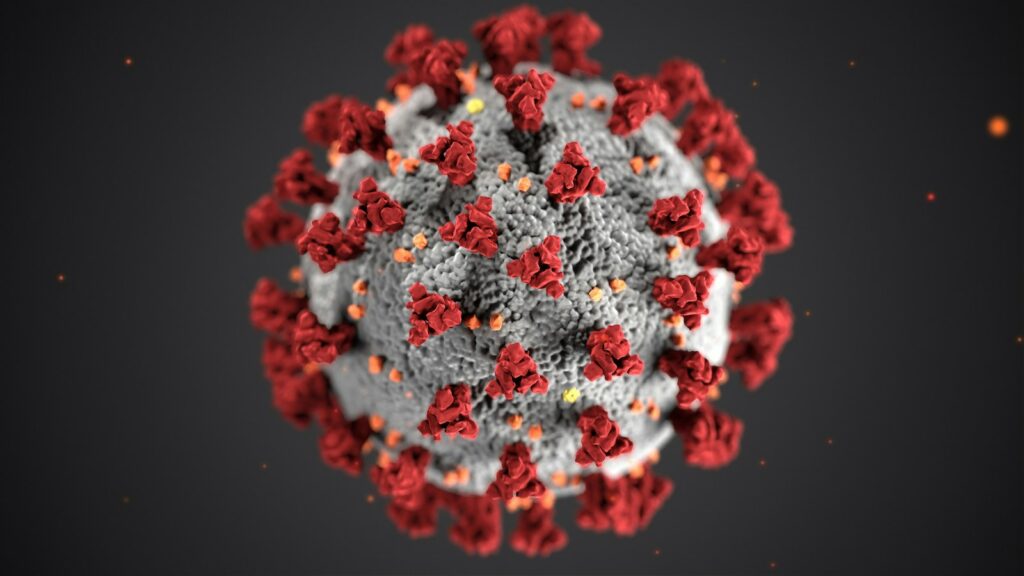Children’s dental health is just as important as the rest of their physical health. According to the CDC, children with untreated cavities may have problems meeting milestones due to having problems such as eating, talking, playing, and learning. Children need dental care at different stages of their life. From their first tooth to having a complete set of adult teeth, regular dental checkups can help catch early signs of disease and get them the treatment they need.

0 to 12-Month-Old Babies
From age 0 to 12 months old, babies require oral care even before they have teeth. If your child does not have teeth yet, it is recommended to wipe their gums twice a day with a soft and clean cloth to prevent bacteria, and sugar build-up. Babies typically start developing teeth between 6 and 12 months of age. Around this time, it is recommended that your child switches to a sippy cup to prevent baby bottle tooth decay. Baby bottle tooth decay happens when liquid from the bottle pools around the teeth and eats away at the enamel. The CDC recommends brushing them twice a day with a soft-bristled brush and plain water when teeth start coming in. At 12 months or when the first tooth appears, your child will be ready to visit the dentist for the first time.

Children ages 13 months to 12 years
At 24 months of age, start brushing teeth with fluoride toothpaste twice a day. If younger than 24 months, talk with your dentist or pediatrician before using fluoride toothpaste. Primary or baby teeth should be fully in by 33 months of age. For children younger than six years of age, watch to ensure they brush their teeth using a pea-sized amount of toothpaste and spit rather than swallow. When your child is 6 to 7 years of age, they will develop their adult teeth. Around the age of 12, your child should be done losing all their baby teeth. If you live in an area that does not have fluoridated water, ask your pediatrician about taking additional fluoride supplements to help prevent cavities. You can visit the CDC water’s fluoride website to see how much fluoride is in your water.
Teenagers aged 13 to 21
After 12, all baby teeth should be gone, and permanent teeth should have taken their place. Teenagers aged 13 to 18 should brush their teeth twice daily with fluoride toothpaste. Permanent teeth should be fully completed in between 17 to 21 years of age. Between the ages of 17 to 21, the last set of molars should be grown in. At this age, it is essential to build healthy habits to help your teen keep their teeth nice and healthy.
As teenagers grow all their permanent teeth, they may develop orthodontic problems like an overbite or crooked teeth. If your teenager has braces, it can be hard to clean between and around the hardware. When it is harder to brush your teeth from braces or an overbite, your teenager may be at risk of cavities or gum disease.
Sometimes when wisdom teeth start to come in, they do not have enough room in the mouth to grow and may need to be removed. Wisdom teeth can become impacted, meaning that they are not growing correctly and possibly get stuck. Impacted wisdom teeth can cause pain, infection, cysts, gum disease, and other oral health concerns if not taken care of.

What Makes Some Children More Prone to Cavities?
Some children may be more at risk of developing cavities than others for various reasons. Being prone to cavities can be passed down through genetics. If parents or siblings are at high risk for developing cavities, there is a good chance your child is too. Children are also more prone to cavities if the child’s parents have tooth decay. Tan, brown, or black spots on children’s teeth is a sign of tooth decay. White spots on children’s teeth can mean teeth have lost calcium and other essential minerals to stay strong. In addition, children who have special care needs or are wearing braces may also be at a higher chance of getting cavities. Lastly, foods with high amounts of sugar like candy or cookies are also prime causes of cavities that can be avoided with a healthy diet in place.
If you have questions about your baby’s or child’s oral health, the KixCare team is available to help answer your questions. Our pediatricians provide comprehensive care that focuses on your kids. KixCare pediatric care experts can help with the most common issues in children and can offer oral health advice.
Book a consultation today with our Pediatric Care Experts.



